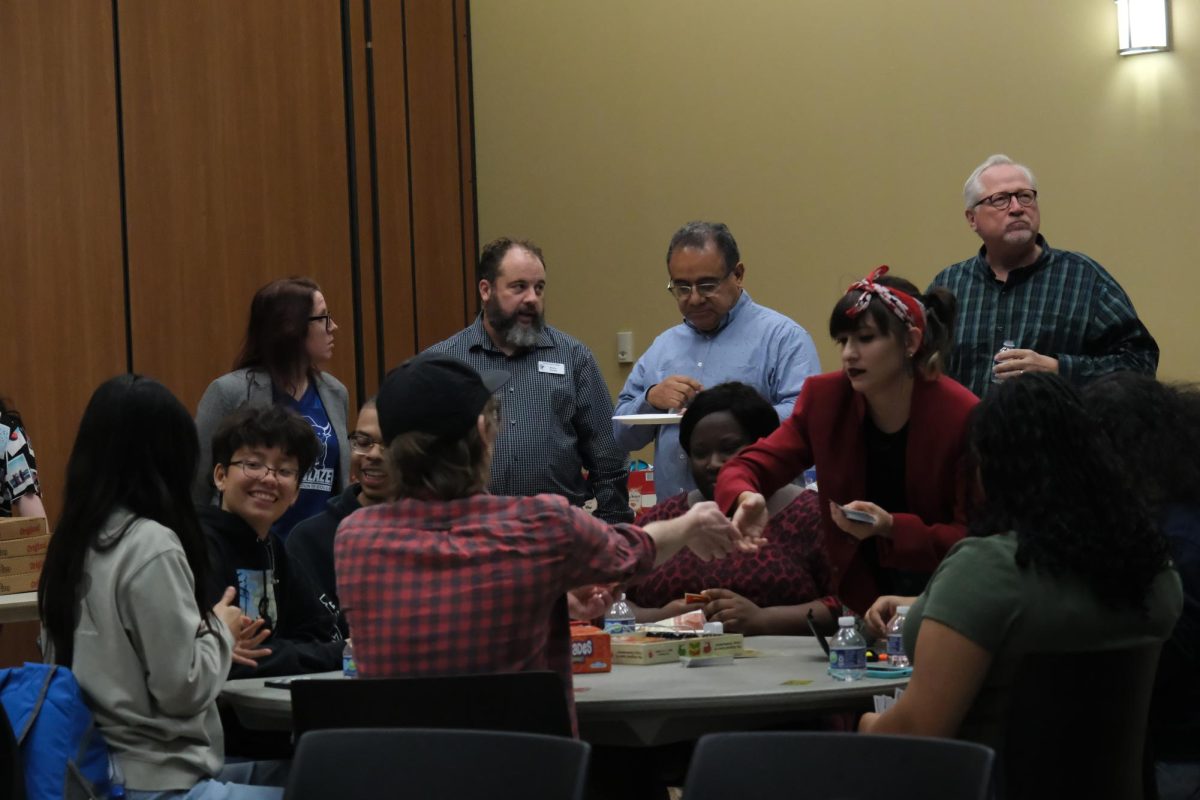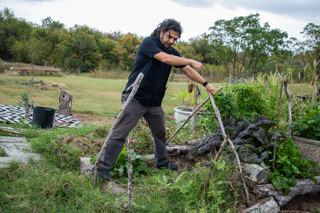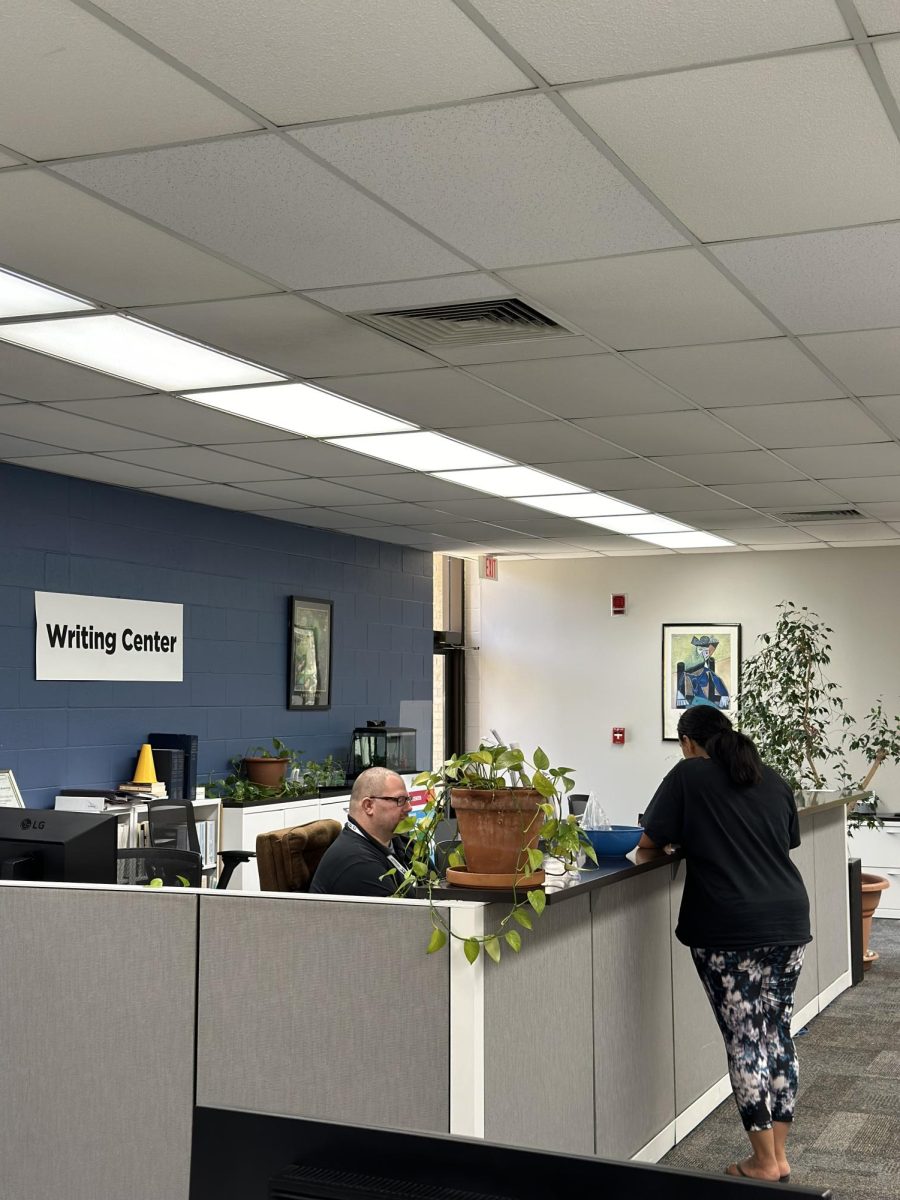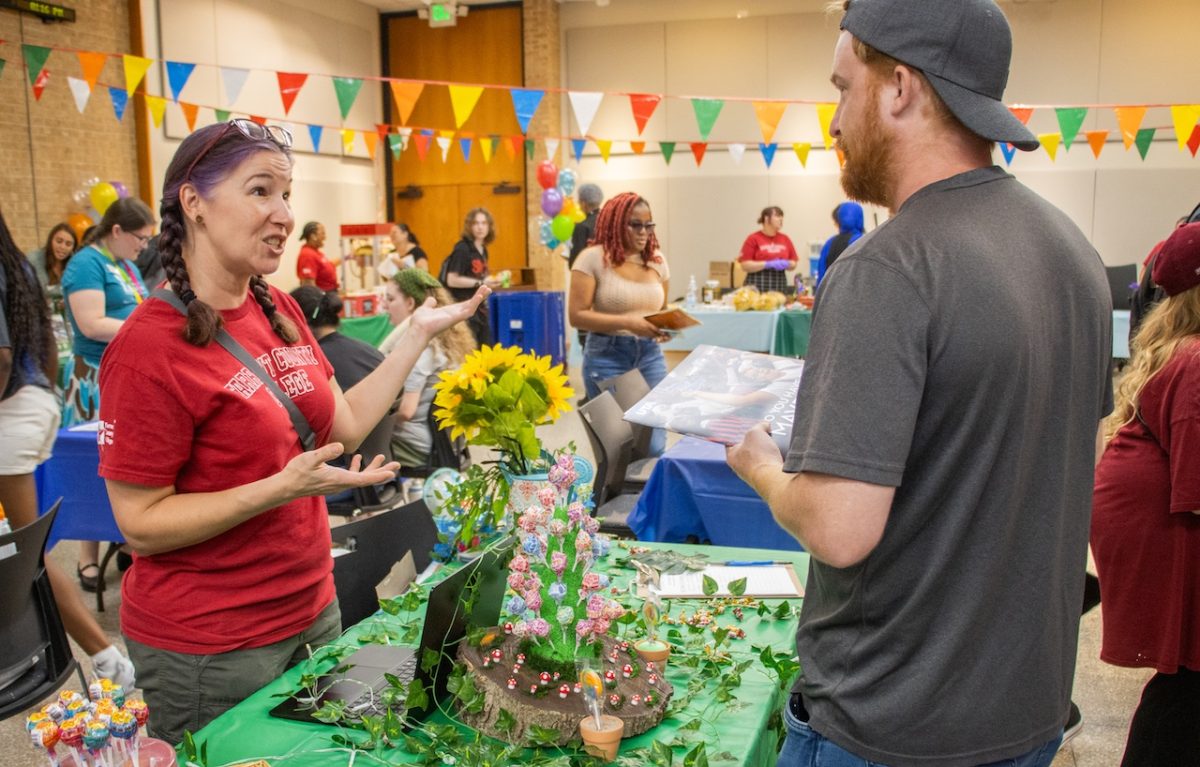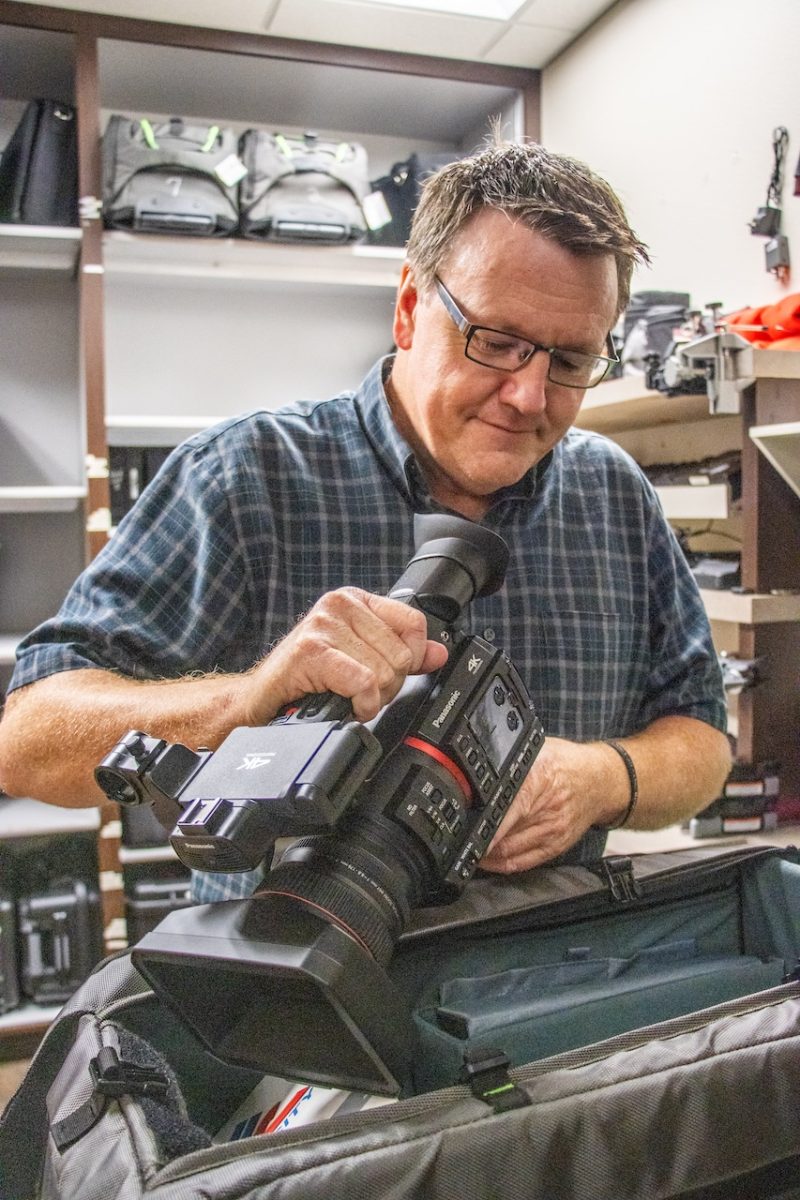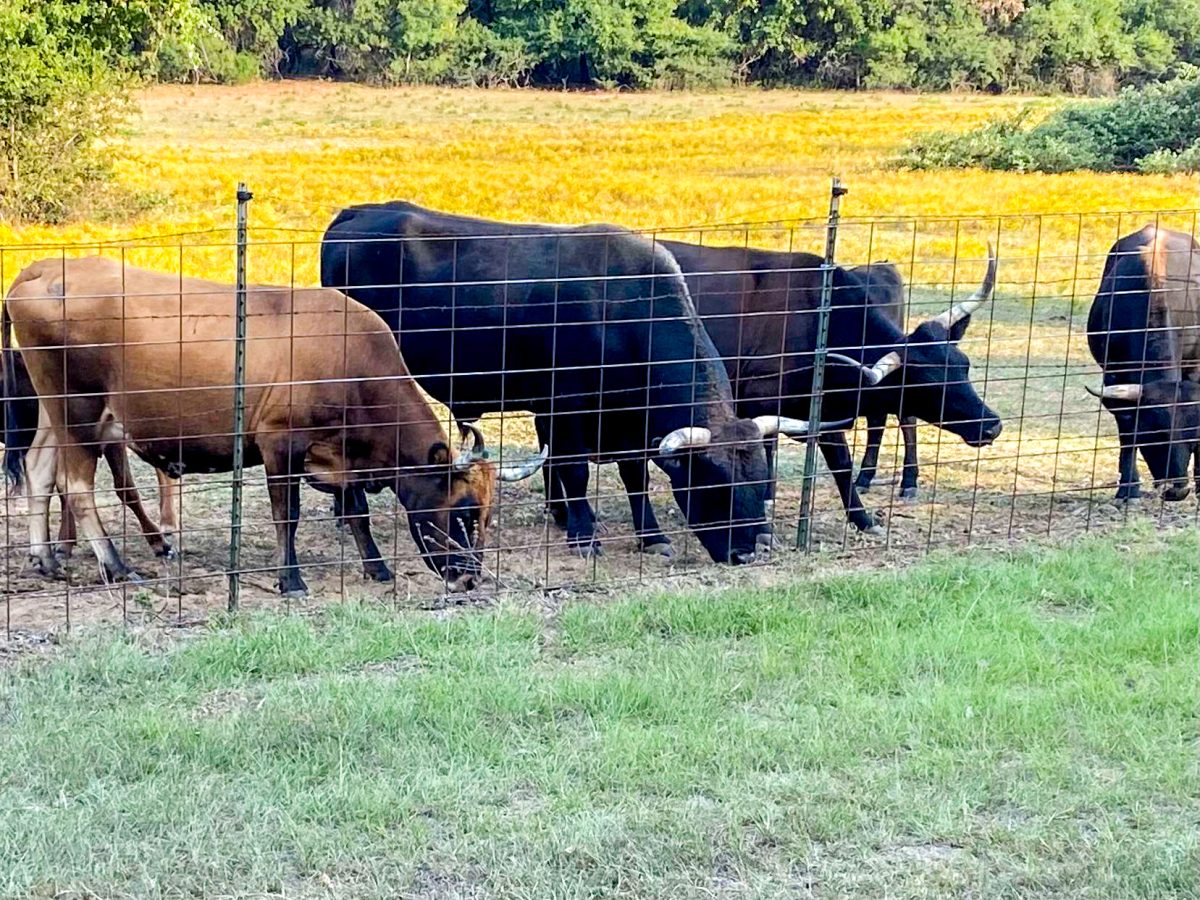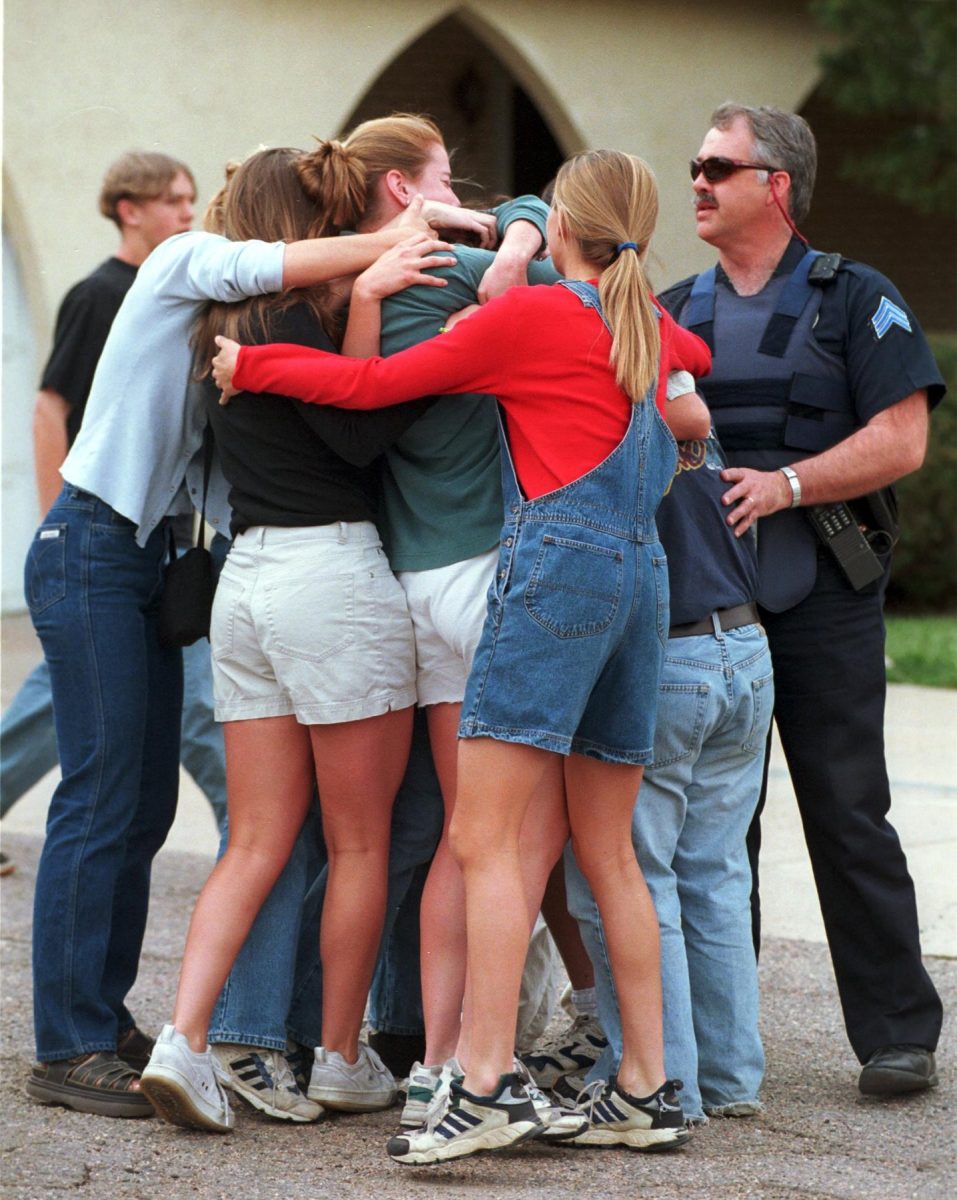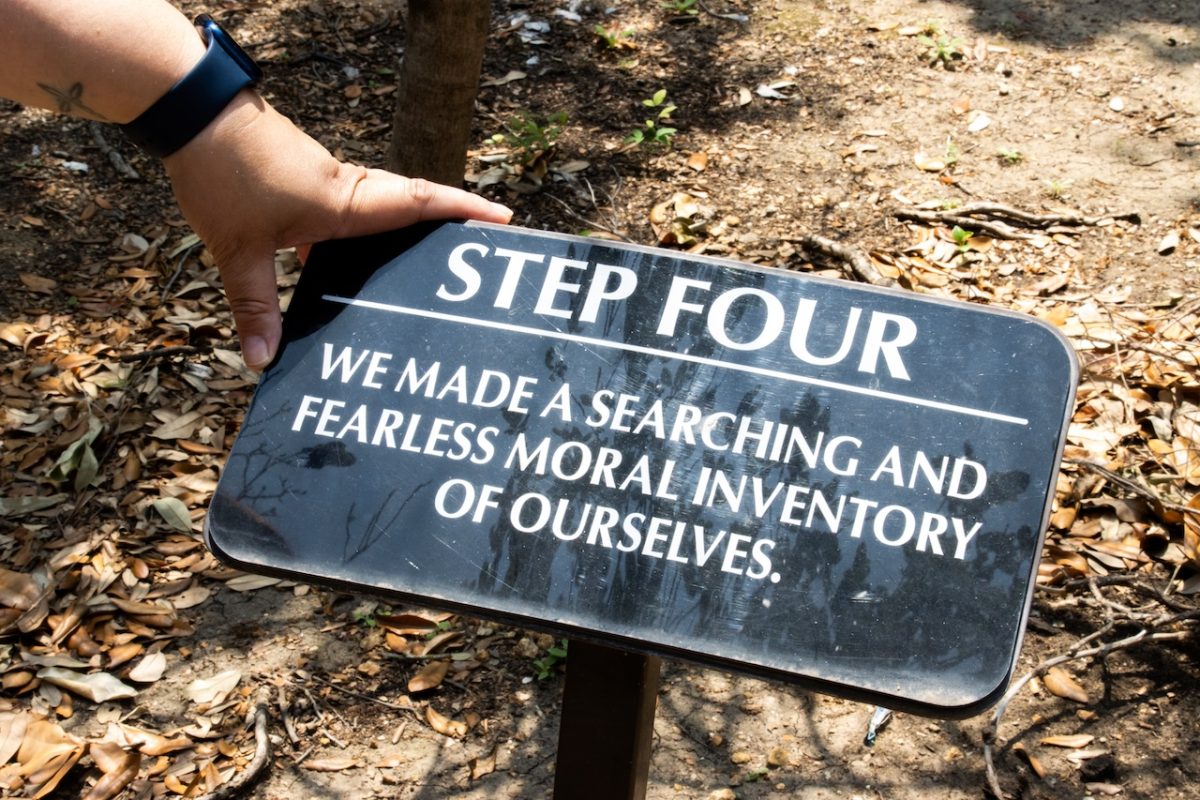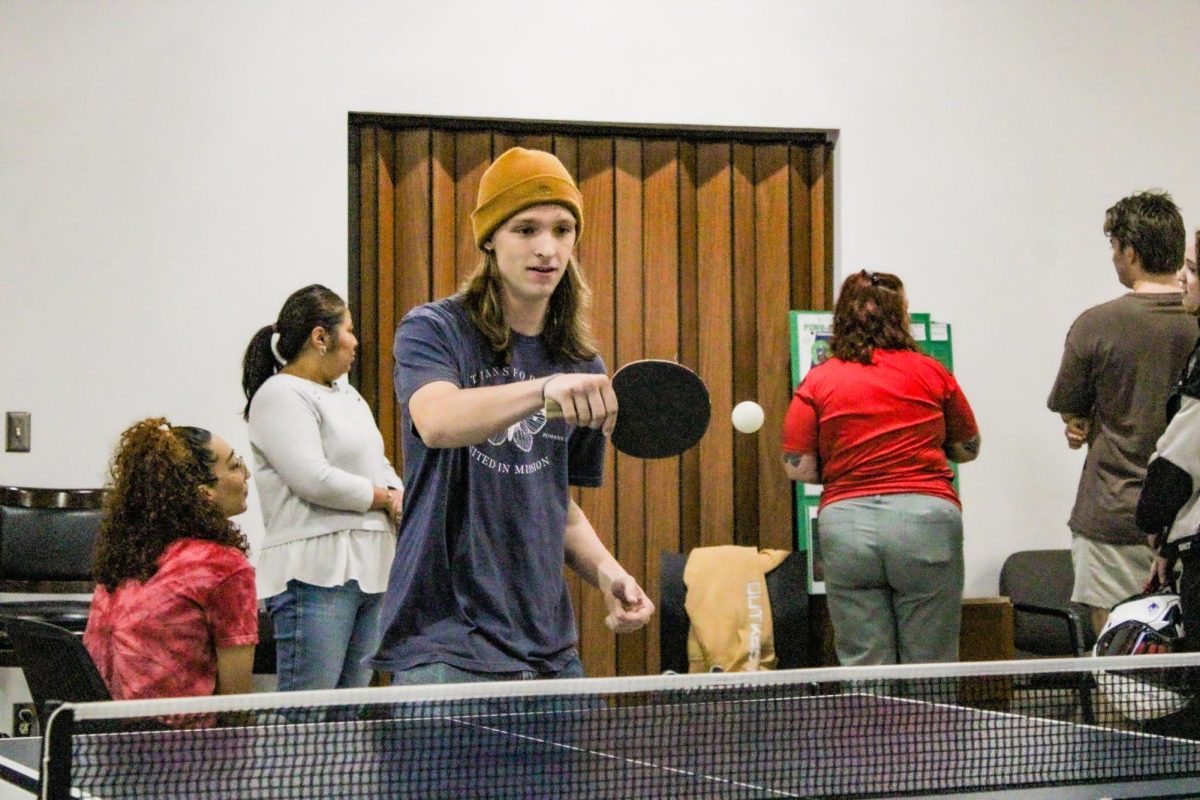In her book ‘Soil; The Story of a Black Mothers’ Garden,’ Camile Dungy hopes to take steps to reverse deep rooted developments and begin reconnecting those around her with their seemingly distant, but inherently maternal earthly ties.
To promote her latest book, she made an appearance at the NE campus on April 10 to discuss her mindset while writing. She also shared lessons she had picked up during the process and gave context to her editorial decisions.
“In most of her writing, she considers history, landscape, culture, family and desire,” said Lynda Davis, a professor in the NE English department. “As we dipped into this book in my classes, my students were startled to discover how slopes of snow could be a metaphor for strenuous efforts and real hope for racial harmony.”
Dungy is an award-winning poet, writer and editor with over 40 titles attributed to her name, seven being entirely authored by Dungy herself.
“I let [my] critical brain be active,” said Dungy. “It helps to keep my frontal cortex really occupied, my brain can wander and take risks and do things that don’t necessarily appear like they’re going to pay off right away.”
In a similar light to her past books, ‘Soil’ takes a personal journey throughout her experience as a black woman and mother moving to a predominantly White area. As she settles her family into their new home in Fort Collins, she is met with heavy restriction to the plant life she’s allowed to keep in her garden.
She uses these restrictions as both a comparison and a metaphor for her struggles with respect, community and belonging in her new surroundings.
“I knew that a poem was finished if when I was editing, I could see it fulfill each pillar in some way,” she explains, “if I could hold the poem in my head [continually] and build on it, I would know that it was finished.”
The threat of homogeneity within both wildlife and humankind is placed under a spotlight throughout her book, cautioning readers and bringing attention to future de- structive possibilities that may arise if efforts towards diversity are not made.
“We are our surroundings. We are made of what we see and the things around us inspire our mindsets,” said Simon Shepherd, a NE student and seasonal member of the Colorado Wildland Firefighters. “If you’re surrounded by sameness outside, you’ll likely want sameness inside.”
Soil was written in solitude during the initial COVID lockdown of 2020, leaving Dungy with a unique challenge. Throughout her presentation she explains that one of her largest interests and main source of inspiration is other people.
Being forced into seclusion, she had to figure out a different approach to continue her story. She opted for the flora and fauna surrounding her home, which could be seen from her office window.
“I include the greater than human world in my list of others who matter to me and my reflections.” she says, “There are snowplow drivers, but there’s also the snow […] I think about putting a natural element of our planet into a human context.”
She concludes with a lesson about human connection and the overarching motivation behind her career as a writer; that everybody has a story and everybody knows something that others don’t.
What may feel like common knowledge to one is most likely unheard of to others, sharing these beliefs or tidbits from life is the only way to spread information, form a con- nection and plant a seed that may just grow into a healthy, thriving, diverse community.


